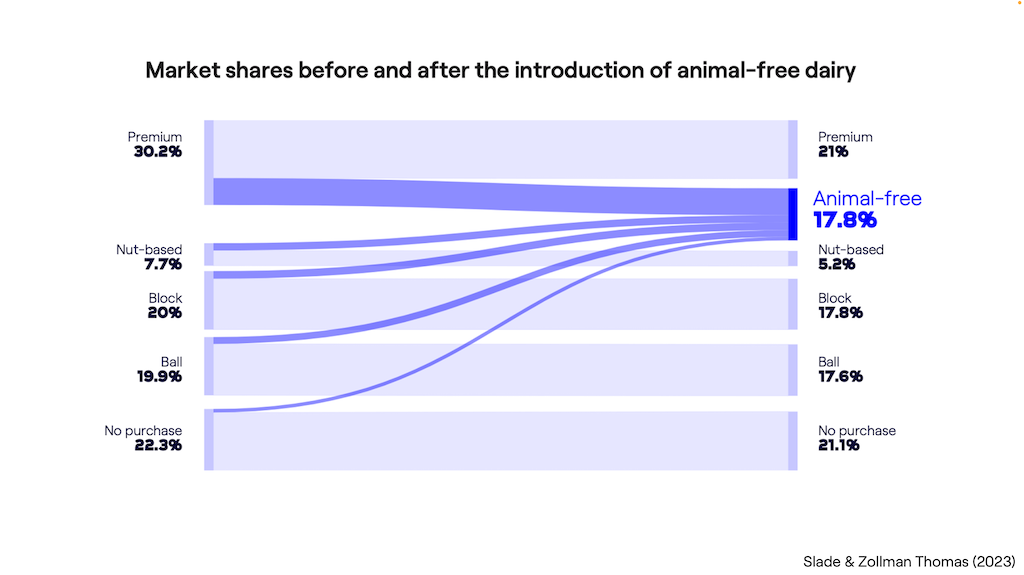The University of Saskatchewan and Formo, a pioneer in European precision fermentation, have collaborated on an important study that reveals the promising connections between dairy industry efforts to reduce greenhouse gas emissions and the cheese market.
According to the latest study, which was published in the International Food and Agribusiness Management Review Journal, a significant percentage of consumers will choose animal-free cheese, making up an initial 22 percent market share, even with a 25 percent price premium.
The results
The researchers predicted that animal-free cheese will take a 33 percent market share when pricing for cheese like Formo’s, which uses precise fermentation to produce milk from microorganisms, becomes comparable to regular cheese. These numbers are anticipated to rise as user adoption, industry relationships, and technology advancement accelerate.
“The question whether or not society is going to embrace the coming generations of food has loomed over the cell-ag space for quite some time,” Associate Professor Peter Slade of the University of Saskatchewan said in a statement. “Precision-fermentation dairy is poised to revolutionize markets as long as it can achieve competitive prices.”
The findings suggest that increased cheese costs may not always result in a reduction in consumer cheese consumption, according to Oscar Zollman Thomas, chief researcher at Formo. Instead, he said, “consumers look for alternative options.” “The introduction of animal-free dairy made by fermentation ushers in a totally different market paradigm. Consumers generally accept the move when offered options that honor their relationship with cheese while resolving their current concerns.
The study’s findings are persuasive; they suggest that even if there is an increase in demand for dairy products around the world, a significant amount of traditional dairy consumption of cheese will be replaced by animal-free dairy cheese, greatly reducing the environmental impact caused by increased dairy demand.
The study also discovered that a whopping 79 percent of consumers looking for dairy cheese free of animal products had previously chosen traditional dairy cheese. This discovery points to the possibility of a sizeable new market, worth more than $1 billion, inside the global dairy business.
Precision fermentation will succeed in capturing mass markets.
“The findings indicate a growing public’s understanding of the costs related to industrialized dairy and an appetite for products that offer enjoyable experiences with no the social repercussions,” Formo’s founder and CEO, Raffael Wohlgensinger, said of the study.
The huge demand from cheese eaters in general supports our prediction that precision fermentation will succeed in mass markets rather than focusing only on the vegan market. We predict a paradigm shift in the availability and consumption of dairy and dairy-like products now that Formo is on track to attain cost parity with conventional dairy. Nothing less than a dairy revolution is taking place right now, he declared.

The study compared the efficacy of precision fermentation to measures like animal emission fees for reducing dairy consumption. The results show that precise fermentation is more effective than carbon taxes at reducing cattle emissions.
According to these data, precision fermentation dairy is 10 times more effective than carbon taxes at the current rate at reducing animal-dairy use, Wohlgensinger stated. This demonstrates the superior effectiveness of precision fermentation in reducing dairy consumption and ought to serve as a wake-up call for governments to support this ground-breaking technology.

